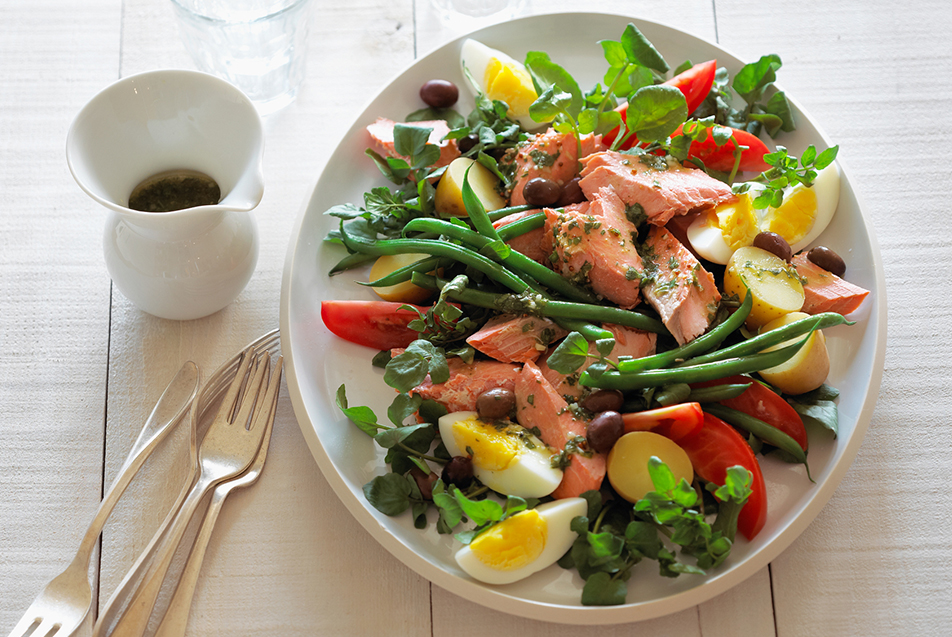
If there is one health concern shared by a predominant percentage of our population, it’s weight management. According to the Centers for Disease Control and Prevention (CDC), more than 70 percent of adults 20 and older are overweight or obese. Keeping a food journal can be an incredibly useful tool in making healthy dietary changes for weight reduction or maintenance, and the macronutrients – fat, carbohydrates and protein – are important pieces of that puzzle. Here, Amanda Sytsma, RDN, CD, explores protein in particular, and the impact it can have on your waistline.
What role does protein play in the body?
Protein plays a vital role in building and maintaining body structures (muscles, ligaments, circulatory system, brain, skin and other organs).
Why is protein so important for maintaining a healthy weight?
Protein helps keep you full for the longest period of time. It is important to include protein on your plate at every meal and to consume as much of it as possible.
How does protein play with the other macronutrients, carbohydrates and fat?
It is important to eat a balanced diet. You want to be sure you don’t focus too much on one food group and cut out others entirely.
How can someone figure out how much protein they need?
A healthy adult needs about 0.8gm of protein per kg. For example, if you weighed 120 lbs you would divide that number by 2.2 (120lb/2.2= 54.54kg, 2.2 lbs = 1 kg) and multiply this number by 0.8 (54.54x 0.8=54.5g protein). This math indicates how much protein in grams you would need daily.
Remember, 3 oz of protein is about the size and thickness of a deck of cards. Depending on other health conditions (cancer, CKD, ESRD or if you have wounds), you might require more or less protein in your diet.
What are some good sources of protein?
You can find protein in most food groups (dairy, meat, starch and green leafy vegetables). Usually animal sources of protein are better absorbed.
What are some good protein options for vegetarians?
Soy (tofu), legumes, eggs, dairy and fish. It is a great idea to try and incorporate some meatless meals into your weekly menu (bean chili or lentil soup).




